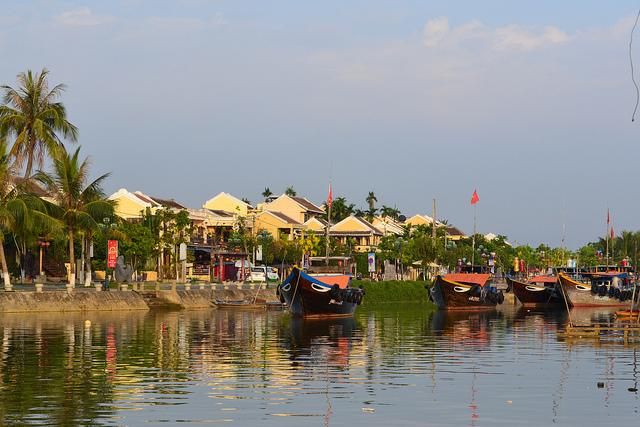Vietnam Faces Challenges In Aggressive Solar Power Production Plan
Vietnam is planning to add over 1,000 megawatts of solar power production to their country and have it up-and-running by 2018. That aggressive approach is to help with an ongoing surge of energy demands, but issues are on the horizon.
Updated May 26 2019, 7:47 p.m. ET
Renewable energy production hasn’t been very strong in Southeast Asia, but it could get a significant boost very soon. Vietnam needs to boost their power output rapidly to meet an increase in demand over the next eight years. Due to the steadily dropping costs of solar energy, the TTC Group in Ho Chi Minh City are looking to add a gigawatt worth of solar parks by 2018.
The TTC Group is an investor in properties such as real estate, energy, and tourism. These aggressive plans detail that 10 to 20 solar parks will be built in the next year with costs reaching the $1 billion mark. Thai Van Chuyen, the group’s CEO, tells Mai Ngoc Chau of Bloomberg that the reason for building solar plants was due to development prices being cheaper when compared to coal-fired power plants. VnExpress reports that costs have dropped from 15 cents to as low as 10 cents.
Two different sections of the TTC Group will be developing the solar projects. TTC Sugar will develop a fifth of the planned solar farms, while Gia Lai Electricity JSC will monitor the rest. The goal is to not only complete production in 2018, but to have them running in that same time frame.
Vietnam’s energy demand will double by 2025 according to the Bloomberg report. Based on World Data’s statistics, the country currently consumes over 125 billion kilowatt-hours of energy. Of their production capacity, only 0.2 percent of it comes from renewable sources. The government is hoping that 10.7 percent of energy produced comes from solar and wind generation by 2030.
It’s easier said than done, however, as there may be roadblocks in the way. Putting together over 10 solar farms in less than year will possibly affect quality, meaning they may not be as efficient. Another issue is financing the projects. TTC will be paying for 30 percent of the project, meaning they’ll be attempting to get other funding from banks.
Unfortunately, the Ministry of Industry and Trade (MOIT) in Vietnam doesn’t have a thorough draft of their solar power purchase agreement (PPA), which is the country’s plan to implement solar energy generation. Baker McKenzie, a multinational law firm, doesn’t believe that foreign banks would support building these farms because of this.
One of the issues in the law firm’s report includes the Vietnam Electricity Corporation (EVN) having the ability to not pay back these banks -- even after power plants are fully constructed -- until they set up a grid system. The EVN would also have the power to charge developers for any unexpected costs when connecting the plants to the grid. Another issue was the likelihood of losing money, should the power purchase agreement falter and the electric company default.
There may be quite a few challenges ahead for Vietnam. While these project announcements are exciting, they’ll likely need to update their PPA to minimize the risk associated in funding with them to bring more renewable energy into the area.

